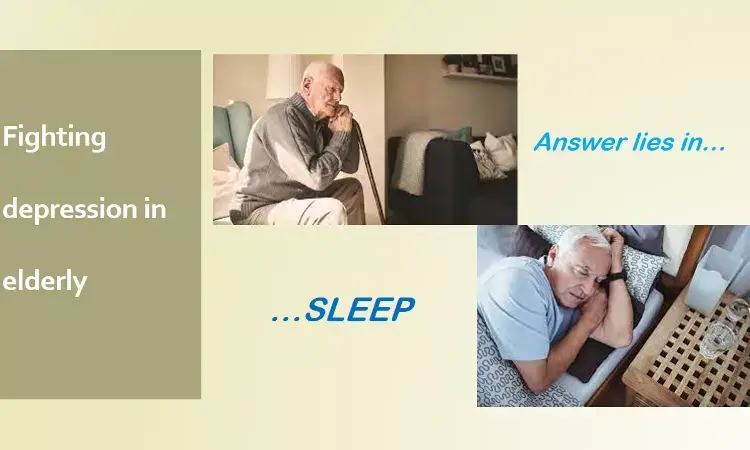- Home
- Medical news & Guidelines
- Anesthesiology
- Cardiology and CTVS
- Critical Care
- Dentistry
- Dermatology
- Diabetes and Endocrinology
- ENT
- Gastroenterology
- Medicine
- Nephrology
- Neurology
- Obstretics-Gynaecology
- Oncology
- Ophthalmology
- Orthopaedics
- Pediatrics-Neonatology
- Psychiatry
- Pulmonology
- Radiology
- Surgery
- Urology
- Laboratory Medicine
- Diet
- Nursing
- Paramedical
- Physiotherapy
- Health news
- Fact Check
- Bone Health Fact Check
- Brain Health Fact Check
- Cancer Related Fact Check
- Child Care Fact Check
- Dental and oral health fact check
- Diabetes and metabolic health fact check
- Diet and Nutrition Fact Check
- Eye and ENT Care Fact Check
- Fitness fact check
- Gut health fact check
- Heart health fact check
- Kidney health fact check
- Medical education fact check
- Men's health fact check
- Respiratory fact check
- Skin and hair care fact check
- Vaccine and Immunization fact check
- Women's health fact check
- AYUSH
- State News
- Andaman and Nicobar Islands
- Andhra Pradesh
- Arunachal Pradesh
- Assam
- Bihar
- Chandigarh
- Chattisgarh
- Dadra and Nagar Haveli
- Daman and Diu
- Delhi
- Goa
- Gujarat
- Haryana
- Himachal Pradesh
- Jammu & Kashmir
- Jharkhand
- Karnataka
- Kerala
- Ladakh
- Lakshadweep
- Madhya Pradesh
- Maharashtra
- Manipur
- Meghalaya
- Mizoram
- Nagaland
- Odisha
- Puducherry
- Punjab
- Rajasthan
- Sikkim
- Tamil Nadu
- Telangana
- Tripura
- Uttar Pradesh
- Uttrakhand
- West Bengal
- Medical Education
- Industry
Insomnia treatment may prevent major depression in elderly, JAMA study.

Late-life depression (major depressive disorder in adults >60 years) has a 12-month prevalence that exceeding 10%. Although effective pharmacologic and psychological treatments are available, the effects are modest, relapse rates are high, and many patients do not respond to treatments at all. A recent randomized control trial done by Irwin et al., published in Jama psychiatry has shown that treatment of insomnia may be beneficial in the prevention of depression in older adults.
Older adults with depression often do not receive diagnosis and treatment, and even with treatment, only approximately one-third achieve remission, with an estimated remaining disease burden of 60%. Effective depression prevention is thus the need of the hour.
Pharmacotherapy is often used to treat insomnia, although medication provides only temporary remediation and poses risk for day time effects and dependency. The present study focused on non-pharmacological treatments so as to examine whether treatment of insomnia disorder with cognitive behavioral therapy for insomnia (CBT-I) (combination of cognitive therapy, stimulus control, sleep restriction, sleep hygiene, and relaxation) compared with an active comparator condition, sleep education therapy (SET) (which targets day-to-day behavioural and environmental factors that contribute to poor sleep) prevents major depressive disorder in older adults.
The study enrolled 291 adults 60 years or older with insomnia disorder who had no major depression or major health events in past year. Participants were randomized to 2 months of CBT-I (n = 156) or SET (n = 135).
It was found that incident or recurrent major depression occurred in 19 participants (12.2%) in the CBT-I group and in 35 participants (25.9%) in the SET group, with an overall benefit consistent across subgroups. Remission of insomnia disorder continuously sustained before depression event or during follow-up was more likely in CBT-I participants.
Those in the CBT-I group with sustained remission of insomnia disorder had an 82.6% decreased likelihood of depression compared with those in the SET group without sustained remission of insomnia disorder.
Treatment with CBT-I yielded an annual incidence of depression at 4.1%, similar to the population rate and half the rate in SET at 8.6%, consistent with a 2-fold greater risk of depression in those with insomnia.
A novel approach to beat the stigma
"This study indicates that an intervention aimed at insomnia can effectively reduce the incidence of major depression in those without a depressive disorder at the start of the intervention, meaning that depression can be prevented effectively without even using the word depression and thus avoid the associated stigma", note Cuijpers et al in an accompanying editorial.
This major finding offers exciting new opportunities for the prevention field and opens a new field of research into indirect preventive interventions for avoiding the stigma of mental disorders.
Source: JAMA Pschiatry:
1. doi:10.1001/jamapsychiatry.2021.3153
2. doi:10.1001/jamapsychiatry.2021.3422
M.B.B.S, M.D. Psychiatry
M.B.B.S, M.D. Psychiatry (Teerthanker Mahavir University, U.P.) Currently working as Senior Resident in Department of Psychiatry, Institute of Human Behaviour and Allied Sciences (IHBAS) Dilshad Garden, New Delhi. Actively involved in various research activities of the department.
Dr Kamal Kant Kohli-MBBS, DTCD- a chest specialist with more than 30 years of practice and a flair for writing clinical articles, Dr Kamal Kant Kohli joined Medical Dialogues as a Chief Editor of Medical News. Besides writing articles, as an editor, he proofreads and verifies all the medical content published on Medical Dialogues including those coming from journals, studies,medical conferences,guidelines etc. Email: drkohli@medicaldialogues.in. Contact no. 011-43720751


